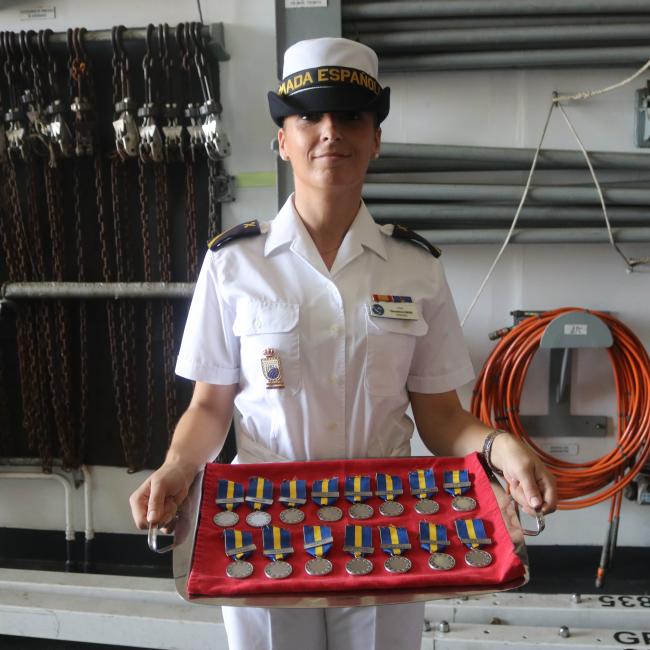Today is an important milestone for the EU’s Common Security & Defence Policy, as the European Union Naval Force (EU NAVFOR) celebrates ten years of maritime operations.
Commanded from its military HQ in Northwood, London, the European Union Naval Force was officially launched on 8 December 2008. Codenamed ‘Operation ATALANTA’ (after the mythological Greek huntress), it is a naval force generated by EU Member States working collectively, in support of UN Security Council Resolutions agreed from 2008 onwards, to tackle the Somali piracy crisis at source.
EU NAVFOR has played a vital military role over the past decade in upholding freedom of navigation for commercial shipping and in protecting World Food Programme (WFP) humanitarian assistance destined for Somalia.
As a tool of EU foreign and security policy, EU NAVFOR represents more than just ships. It is a network of military, civil and diplomatic capability that certainly includesmaritime patrol aircraft and on-board vessel protection detachments, but which also links into legal, political, commercial and development objectives.
EU NAVFOR continues to work closely with other naval and military partners like the US-led Combined Maritime Forces; those regional states affected by piracy like Kenya and Seychelles; and independent deployer nations like China and India, whose navies share the burden of international convoy escorts in the Internationally Recommended Transit Corridor.
In this sense, EU NAVFOR continues to act as a catalyst for the network of maritime security capability we see developing from the southern Red Sea into the western Indian Ocean, and EU NAVFOR has become a small but recognised part of the maritime security architecture of the region. It remains extremely relevant in both human and economic terms, as EU NAVFOR seeks to provide protection to the more than €800 Bn of east-west trade transiting the military area of operations.
Happy anniversary to all our service personnel currently deployed on Operation ATALANTA.
